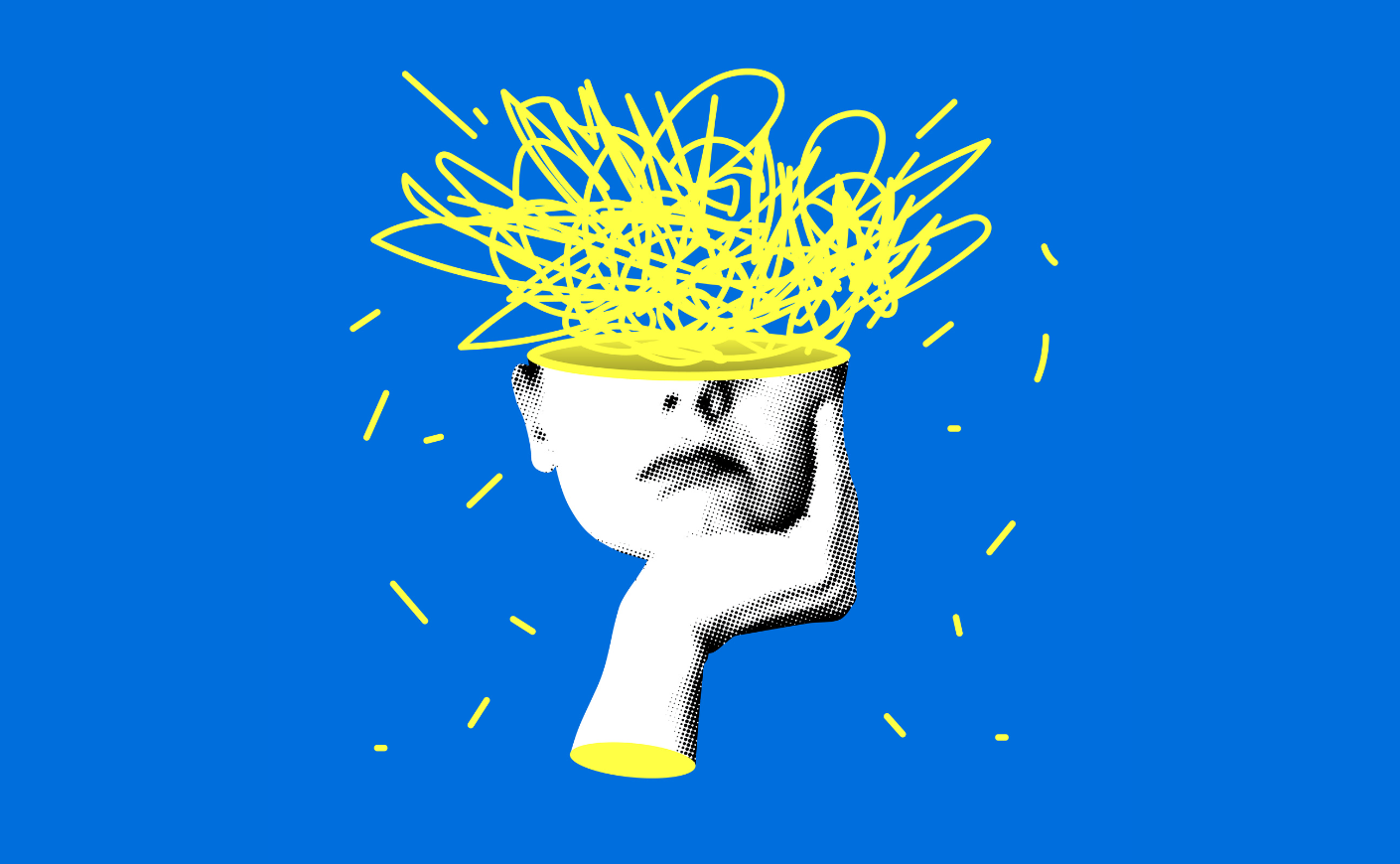Mood swings, irritability, anxiety. These are just a few of the issues triggered by the hormonal rollercoaster of menopause and perimenopause. But they could also be a sign of another condition that often goes misdiagnosed in middle-aged women: ADHD, a neurodevelopmental disorder that's characterized by inattention, disorganization, hyperactivity, and impulsivity.
The chemical changes that occur during the menopausal transition may worsen symptoms of ADHD, says Shanna Pearson, the author of the new book, Invisible ADHD. And that leaves many women who haven’t been diagnosed suddenly unable to cope.
“These women have developed systems to keep it together their entire lives — managing their careers, their families, their relationships,” Pearson tells us. “And then, boom: Perimenopause hits, and it’s like the rug gets pulled from underneath them. Every system that they created to get by just stops working.”
We spoke to Pearson about what's behind this phenomenon, why so many women are being misdiagnosed, and what you can do if you believe you may be one of them.
There's been a lot of talk lately about how ADHD manifests differently in women than in men. Can you explain what that looks like?
Pearson: In general, men tend to exhibit symptoms that are much more external and physical. They might be physically restless, their eyes might dart around at the dinner table. They tend to do things that are more impulsive like driving too fast, having more affairs — things they can act on physically.
For women, in general, their hyperactivity is more in their mind. I describe it in the book as a 24/7 amusement park in your brain, so while life's happening around you, you're more fascinated with everything that's going on in your head. And that's why we don't get called out as much, because you could just be sitting on your couch daydreaming and not disturb anyone. That's why so many women tend to go under the radar.
Related:
How do menopause and perimenopause impact ADHD?
Estrogen plays a very big role in regulating our dopamine levels. People who have ADHD already have low dopamine levels. So when estrogen begins to decline during this stage of life, our dopamine levels crater too — and that can wreak havoc on someone with ADHD.
There are lots of women who've gone undiagnosed and have been able to create ways of coping. These women have developed systems to keep it together their entire lives — managing their careers, their families, their relationships. And then, boom: Perimenopause hits, and it’s like the rug gets pulled from underneath them. Every system that they created to get by just stops working. I believe it's a really big problem.
The other issue, which you discuss in the book, is that many of these women are being misdiagnosed. Why is that?
The fact is, if you have a woman in middle age who's going through these changes but doesn't know she has ADHD, she'll go to the doctor and they'll give her an assessment for anxiety and depression. There's a lot of overlap in the questions they'd ask for these mood disorders and symptoms of ADHD. Do you feel restless? Do you have trouble concentrating on things? Do you have trouble relaxing? These are all things that people who have ADHD live with 24/7, so many women will get misdiagnosed with anxiety or depression because they're not being screened for ADHD.
How can women tell if they may have ADHD?
The one key thing I tell women, which won't typically appear on questionnaires, is to ask yourself if you're experiencing severe overwhelm. I call it the "deer-in-the-headlights syndrome." It's this feeling where you have 20 things to do, and they all feel equally important, but you just don't know what to do first. If you have ADHD, this is something you've experienced for most of your life — not just when you're going through hormonal changes.
What advice do you have for women who may suspect they have ADHD?
I highly recommend going to a doctor who specializes in ADHD. Because if you go to a general therapist, you will likely get misdiganosed with depression or anxiety.
There are also things you can do right now to start alleviating your symptoms. One thing I recommend is to start learning mood management. I tell all my clients that you can have an outstanding time management system, but it won't amount to anything if you don't feel like getting things done. So one great tip is to spend three days logging when you feel like you have the most energy and when you hit slumps. If you're a morning person, schedule your hardest tasks then; if you feel more energized later in the day, block that part off to cross the hard things off your to-do list.
The other thing I tell people is to do things that will get them out of their heads. A lot of women with ADHD can be locked into our heads for most of the day, so getting in touch with our bodies can really help. That doesn't necessarily mean you have to exercise. It can be as simple as implementing a physical state change. So if you're at the computer and find yourself getting sucked into a rabbit hole, stand up and put on some music. You could even suck on a really strong mint or a drink a glass of ice water — just some sort of physical stimulus to get you out of your head.
This interview has been edited for clarity and length.









